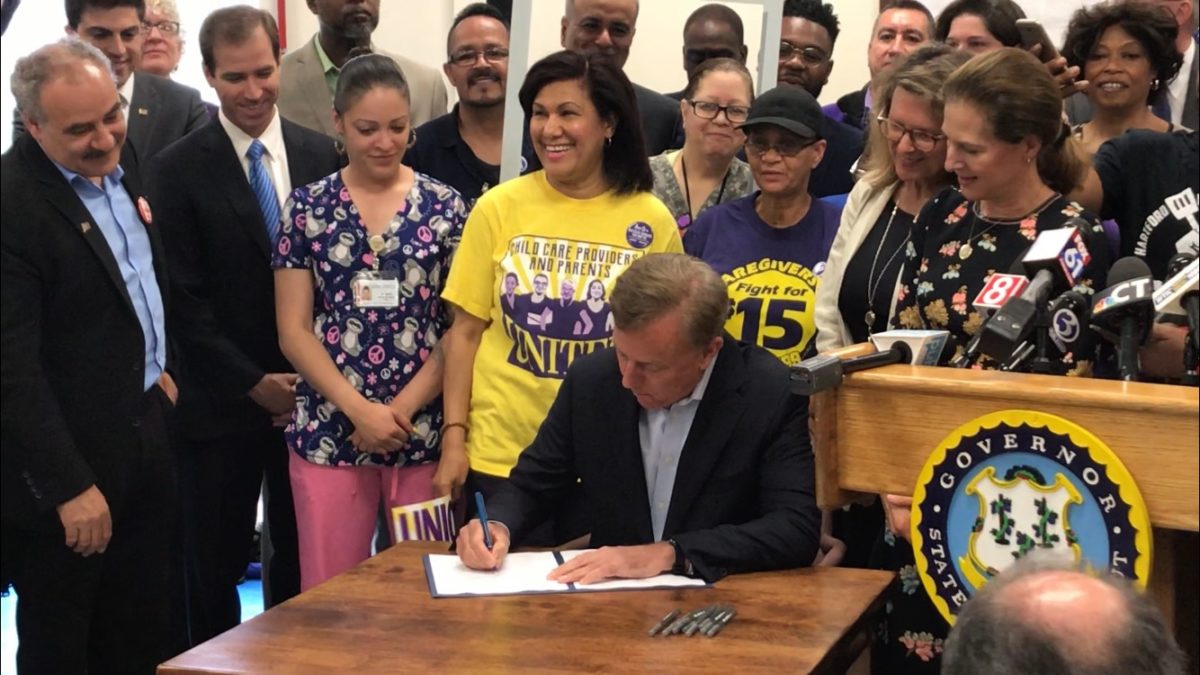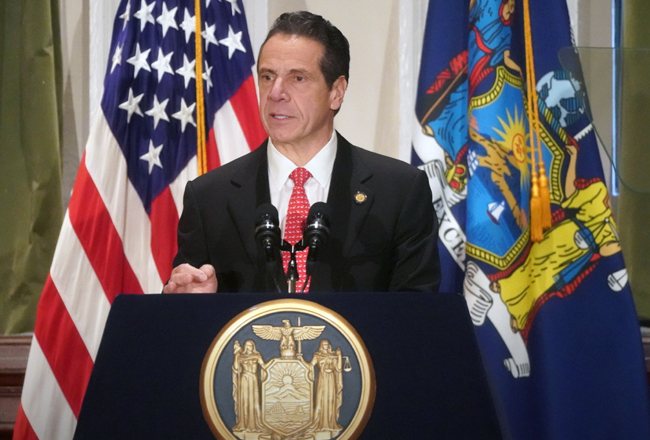
Gov. Ned Lamont signed Connecticut”™s minimum wage increase into law this morning, which will take the hourly rate from the current $10.10 per hour to $15 per hour by mid-2023.
The hourly minimum wage will increase to $11 on Oct. 1; $12 on Sept. 1, 2020; $13 on August 1, 2021; $14 on July 1, 2022; and $15 on June 1, 2023. Further wage increases would be indexed to the federal employment cost index.
For 16- and 17-year-olds, they will receive 85 percent of the minimum wage during a 90-day period, after which time they will receive the full amount.
“This is perhaps one of the most impactful pieces of legislation for working families that a governor can sign, and I am proud to place my signature on this law because it is the right thing to do,” Lamont said. “With this new law, thousands of hard working women and men ”“ many of whom are supporting families ”“ will get a modest increase that will help lift them out of poverty, combat persistent pay disparities between races and genders, and stimulate our economy. This is a fair, gradual increase for the working women and men who will invest the money right back into our economy and continue supporting local businesses in their communities.”’
The Connecticut Department of Labor and Connecticut Voices for Children estimate those increases will raise wages for approximately 130,000 workers this year and more than half a million by 2024.
“Raising the minimum wage will address persistent pay disparities between different races and help bring us closer to eliminating the gender pay gap,” Lt. Gov. Susan Bysiewicz said. “Nearly 60 percent of minimum wage earners in Connecticut are women. There are 170,000 households headed by women, and if we want to grow our economy, we need to ensure that women have the financial security they need to provide for their families.”
Connecticut joins New York, Massachusetts, Maryland, California, Illinois, New Jersey and the District of Columbia in passing laws requiring a $15 minimum wage to be in place by 2025 at the latest.



















